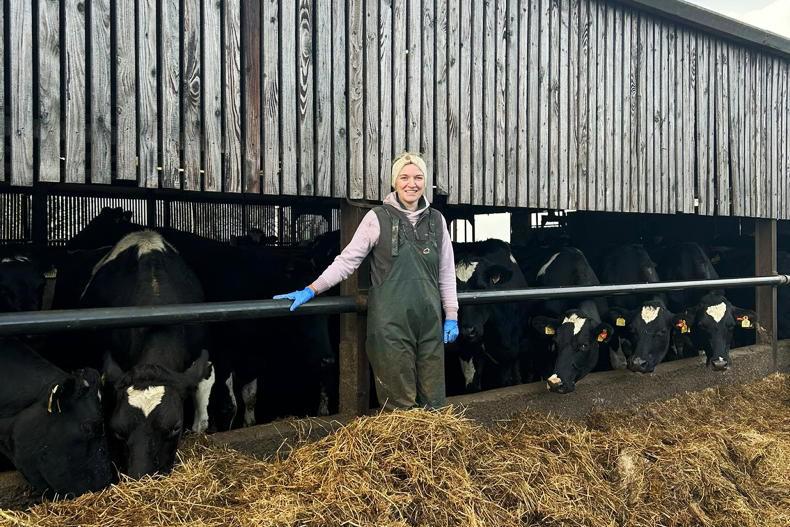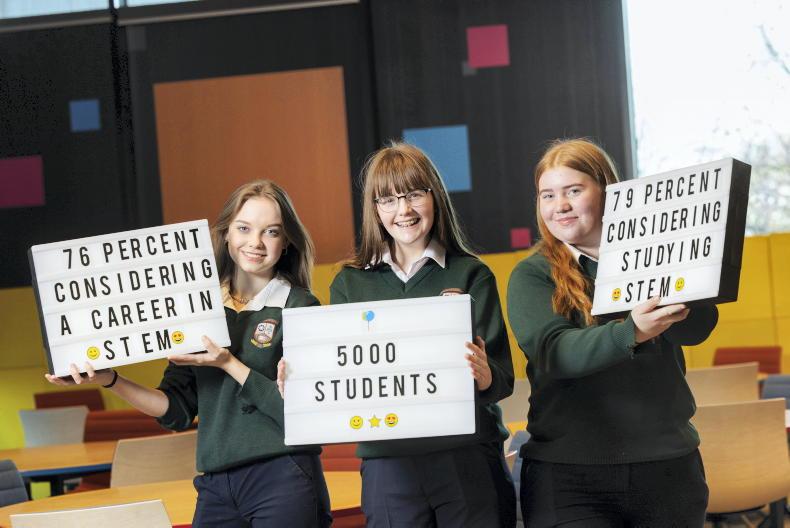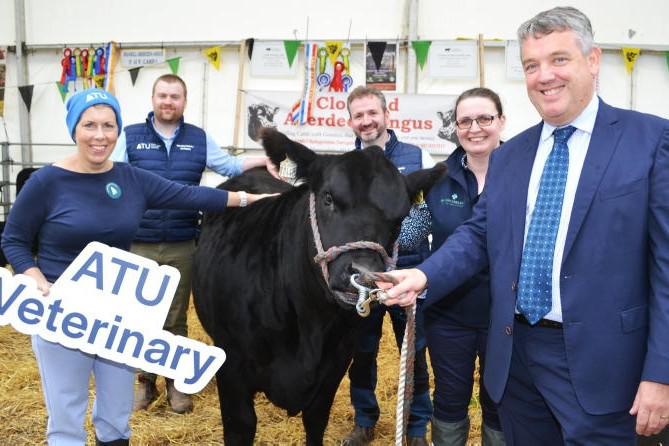There are many more options than higher education available to you after school, CAO is not the only show in town.
A survey of more than 700 employers carried out last year by education authorities, highlighted that graduates from apprenticeships and post-Leaving Cert (PLC) courses are rated as highly as graduates from third-level colleges by Irish employers.
You can research these courses on www.fetchcourses.ie and use the links to apply for courses.
Many further education colleges and PLC providers continue to accept applications until all places are filled and may not have a specific application closing date.
As some courses are very popular, it is advised to apply early so keep your antennae up for those closing dates which vary from college to college, unlike the CAO system.
PLC courses:
Qualify you with a Level 5 or 6 qualification.Can serve as a back door into higher education nstitutions.Suit students who for financial/health/personal/visa requirement reasons are not in a position to embark on a three- to four-year programme. Are ideal for any student unsure if a course is right for them and wants to try a short course as a trial before committing to a longer programme. Apprenticeships have a strong emphasis on practical skills and suit hands-on learners and those who may have trouble sitting still in class. You get on-the-job training and “earn as you learn” as you are paid for the duration of the apprenticeship.
There are now over 40 apprenticeships available in areas such as accounting, insurance, engineering, logistics, construction, electrical, engineering, ICT, hospitality and motor, with many more in development in areas ranging from agriculture to recruitment.
As an apprentice, you are employed under a formal contract of apprenticeship that is between two to four years in duration with a minimum 50% on-the-job learning.
The application process is different from higher education as there is not one central application system.
Many apprenticeship programmes have deadlines for applications from March to May, but this is different for every apprenticeship.
Make sure you research what the deadlines, eligibility criteria and the application process are for each individual apprenticeship you are interested in.
Typically, you apply with a CV and/or application form and if shortlisted – attend for interview/s.
Apprenticeship.ie is the main website with links to specific programmes in the different sectors.
Qualities employers seek in their apprentices:
Passion to learn.Interest and flair for chosen traineeship/apprenticeship.Positive attitude.Good communications skills.Willingness to further develop skills within the organisationReliable, good time keeper.Dedicated and focussed on the job.Good problem solver. Does this sound like you? If yes, then have a look on apprenticeship.ie, you may find your dream career.
Traineeships combine learning in an education setting with workplace setting.
The traineeships are delivered by Education and training bo ETBs in partnership with employers in areas identified to have skills shortages, such as business, construction, finance and fashion and beauty.
This means that the employability of those completing these programmes is very high. Other useful facts about traineeships:
They respond to an identified skills need.Lead to an award at Level 4-6 on the National Framework of Qualifications.Are six to 20 months in duration.Have at least 30% on-the-job learning.Combine transferable and technical skills development.Are designed for flexible delivery.Improve employment outcomes for participants.Details of traineeship programmes currently open for registration are available on www.fetchcourses.ie or from your local ETB, where information about entry requirements and applications are available for each traineeship.
Traineeships are ideal for the student who is not ready to commit to a course or job and wants to try something out for a short period of time.
Did you know that a number of European countries offer free university degrees through the English language, such as Germany and the Nordic countries (Sweden, Finland, Norway, Iceland and Denmark)? In the Netherlands, though fees are €2,083, students are entitled to an interest-free loan from the Dutch government with a long repayment period. The entry requirements are also generally much lower compared to the equivalent courses in Irish universities.
In addition to the many Irish students now attending highly-ranked research universities in the Netherlands, increasing numbers are enrolling in the programmes in Universities of Applied Sciences (UAS).
These universities in the UAS offer programmes in areas such as:
Physiotherapy.Game design.Business.Fine art and design.Fashion.Engineering.IT.Music management.The programmes at the UAS are much less academic and more hands-on than those at the research universities.
Note that entry requirements for UAS are either six passes at Leaving Cert (including two x H4) or a relevant QQI Level 5. Costs are low and student finance is available.
Deadlines for applying vary from country to country, a handful are early in the year, most are between May and August.
To research your options, see EUNiCAS at www.eunicas.ie which is an independent application support service.
You can search for different courses in different countries online and for a fee of €28 you can get support and advice on the application process for up to eight programmes in Europe.
UCAS
The UCAS (to study in the UK) application deadline was 15 January but next autumn a second opportunity to apply occurs during clearing.
You can apply through UCAS, view available courses and may be interviewed by telephone.
Research on ucas.com for more information and be sure to first of all talk to your parents/guardians about the feasibility of funding this option.
Students may also consider employment and/or volunteering. Work experience is an excellent source of information about what you are good at and what you enjoy doing.
Your chances of gaining employment are high, as unemployment levels are extremely low right now (approximately 5.3%).
Building up work experience, gaining transferable skills, independence and developing as a person are all very valuable potential outcomes of employment.
A gap year can also, for some, provide opportunity to travel and volunteer, if you can afford it.
However, if you are looking to volunteer abroad, carefully research your options and any organisation/company that offer volunteer programmes abroad as the quality and safety of such programmes can vary significantly.
Don’t forget you can have the best of both worlds; the freedom and adventure of work/travel for a year and the security of a college place to come home to if you defer your CAO place.
Whatever you choose, pursue an option you like and are interested in. The world is your oyster.
Some useful websites:
careersportal.ie – info on all options after school activelink.ie – volunteering/jobs in non-profit organisationsirishgapyear.comhabitatireland.ieprojects-abroad.ieenkosini.org
There are many more options than higher education available to you after school, CAO is not the only show in town.
A survey of more than 700 employers carried out last year by education authorities, highlighted that graduates from apprenticeships and post-Leaving Cert (PLC) courses are rated as highly as graduates from third-level colleges by Irish employers.
You can research these courses on www.fetchcourses.ie and use the links to apply for courses.
Many further education colleges and PLC providers continue to accept applications until all places are filled and may not have a specific application closing date.
As some courses are very popular, it is advised to apply early so keep your antennae up for those closing dates which vary from college to college, unlike the CAO system.
PLC courses:
Qualify you with a Level 5 or 6 qualification.Can serve as a back door into higher education nstitutions.Suit students who for financial/health/personal/visa requirement reasons are not in a position to embark on a three- to four-year programme. Are ideal for any student unsure if a course is right for them and wants to try a short course as a trial before committing to a longer programme. Apprenticeships have a strong emphasis on practical skills and suit hands-on learners and those who may have trouble sitting still in class. You get on-the-job training and “earn as you learn” as you are paid for the duration of the apprenticeship.
There are now over 40 apprenticeships available in areas such as accounting, insurance, engineering, logistics, construction, electrical, engineering, ICT, hospitality and motor, with many more in development in areas ranging from agriculture to recruitment.
As an apprentice, you are employed under a formal contract of apprenticeship that is between two to four years in duration with a minimum 50% on-the-job learning.
The application process is different from higher education as there is not one central application system.
Many apprenticeship programmes have deadlines for applications from March to May, but this is different for every apprenticeship.
Make sure you research what the deadlines, eligibility criteria and the application process are for each individual apprenticeship you are interested in.
Typically, you apply with a CV and/or application form and if shortlisted – attend for interview/s.
Apprenticeship.ie is the main website with links to specific programmes in the different sectors.
Qualities employers seek in their apprentices:
Passion to learn.Interest and flair for chosen traineeship/apprenticeship.Positive attitude.Good communications skills.Willingness to further develop skills within the organisationReliable, good time keeper.Dedicated and focussed on the job.Good problem solver. Does this sound like you? If yes, then have a look on apprenticeship.ie, you may find your dream career.
Traineeships combine learning in an education setting with workplace setting.
The traineeships are delivered by Education and training bo ETBs in partnership with employers in areas identified to have skills shortages, such as business, construction, finance and fashion and beauty.
This means that the employability of those completing these programmes is very high. Other useful facts about traineeships:
They respond to an identified skills need.Lead to an award at Level 4-6 on the National Framework of Qualifications.Are six to 20 months in duration.Have at least 30% on-the-job learning.Combine transferable and technical skills development.Are designed for flexible delivery.Improve employment outcomes for participants.Details of traineeship programmes currently open for registration are available on www.fetchcourses.ie or from your local ETB, where information about entry requirements and applications are available for each traineeship.
Traineeships are ideal for the student who is not ready to commit to a course or job and wants to try something out for a short period of time.
Did you know that a number of European countries offer free university degrees through the English language, such as Germany and the Nordic countries (Sweden, Finland, Norway, Iceland and Denmark)? In the Netherlands, though fees are €2,083, students are entitled to an interest-free loan from the Dutch government with a long repayment period. The entry requirements are also generally much lower compared to the equivalent courses in Irish universities.
In addition to the many Irish students now attending highly-ranked research universities in the Netherlands, increasing numbers are enrolling in the programmes in Universities of Applied Sciences (UAS).
These universities in the UAS offer programmes in areas such as:
Physiotherapy.Game design.Business.Fine art and design.Fashion.Engineering.IT.Music management.The programmes at the UAS are much less academic and more hands-on than those at the research universities.
Note that entry requirements for UAS are either six passes at Leaving Cert (including two x H4) or a relevant QQI Level 5. Costs are low and student finance is available.
Deadlines for applying vary from country to country, a handful are early in the year, most are between May and August.
To research your options, see EUNiCAS at www.eunicas.ie which is an independent application support service.
You can search for different courses in different countries online and for a fee of €28 you can get support and advice on the application process for up to eight programmes in Europe.
UCAS
The UCAS (to study in the UK) application deadline was 15 January but next autumn a second opportunity to apply occurs during clearing.
You can apply through UCAS, view available courses and may be interviewed by telephone.
Research on ucas.com for more information and be sure to first of all talk to your parents/guardians about the feasibility of funding this option.
Students may also consider employment and/or volunteering. Work experience is an excellent source of information about what you are good at and what you enjoy doing.
Your chances of gaining employment are high, as unemployment levels are extremely low right now (approximately 5.3%).
Building up work experience, gaining transferable skills, independence and developing as a person are all very valuable potential outcomes of employment.
A gap year can also, for some, provide opportunity to travel and volunteer, if you can afford it.
However, if you are looking to volunteer abroad, carefully research your options and any organisation/company that offer volunteer programmes abroad as the quality and safety of such programmes can vary significantly.
Don’t forget you can have the best of both worlds; the freedom and adventure of work/travel for a year and the security of a college place to come home to if you defer your CAO place.
Whatever you choose, pursue an option you like and are interested in. The world is your oyster.
Some useful websites:
careersportal.ie – info on all options after school activelink.ie – volunteering/jobs in non-profit organisationsirishgapyear.comhabitatireland.ieprojects-abroad.ieenkosini.org 








SHARING OPTIONS